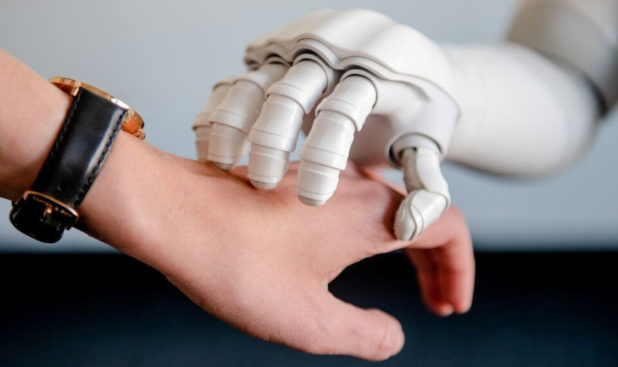Researchers in Germany say that humans are more likely to do what robots say if the robots have a humanoid body and physically touch them.
Why are scientists researching how to make people more likely to follow orders coming from machines though?
Is this The Matrix?
Does a reassuring pat on the back bring you comfort during a tough day? A new study finds, when it comes to touching, people aren’t even picky about who’s doing the touching. Researchers in Germany say the touch of a humanoid robot makes people happier and more likely to follow their requests.
Instead of being reliant on other humans, researchers are hoping that one day robots may be able to fulfill the roles of therapists, personal trainers, and even life coaches. Their study follows the widespread increase of touch starvation during the COVID-19 pandemic. Several studies have pointed out how physical distancing and isolation is creating psychological complications over the last year.
People who go a long time without touch, also called “skin hunger” or “affection deprivation,” may experience a variety of negative physiological effects that increase feelings of stress, depression, and anxiety. Some studies even find that these people may even have an increased likelihood of infections due to immune system changes.
Study authors note scientists continue to explore the effects of physical contact with robots. However, while some studies detect meaningful effects, others find no benefit to a robotic hug.
Feeling lonely?
Talk to the robot.
Let the robot touch you, and obey the robot.
Or have sex with the robot.
Stay home. Virus outside.
 Daily Stormer The Most Censored Publication in History
Daily Stormer The Most Censored Publication in History





